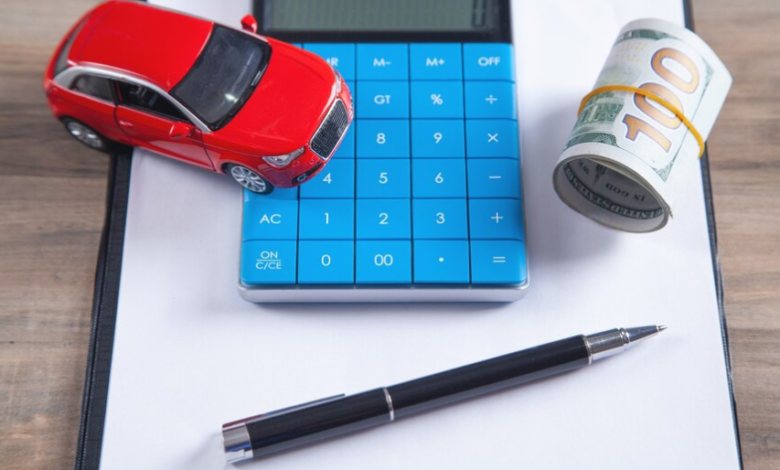How To Lower Your Car’s Running Costs?

To lower your car’s running costs and maximize its value when it’s time to sell your car, focus on saving money. This means doing things that use less fuel, cost less to maintain, and keep your car’s value high. Regular maintenance, like changing the oil and rotating the tyres, helps your car last longer and work better. Good driving habits, such as keeping a steady speed and not speeding up too quickly, also help save fuel.
You can also try sharing rides or taking the bus to cut down on how much you drive. Selling your car for a more fuel-efficient model can significantly reduce long-term expenses. Doing these things can reduce the financial stress of owning a vehicle and improve your overall financial well-being.
Ways To Lower Your Car’s Running Costs
- Regular Maintenance
You need to stick to a strict schedule for upkeep. Change the engine oil regularly to keep it running smoothly. Replace air filters to keep airflow optimal. This boosts fuel efficiency and cuts emissions. Check spark plugs often and replace them if needed for better ignition. Always inspect fluid levels, such as coolant and transmission fluid.
Regular car maintenance stops overheating and transmission issues. Remember to check belts and hoses, which prevent costly breakdowns and engine damage. Regularly inspect your tyres for wear and tear. Keep them properly inflated for better fuel efficiency and safety. Rotate your tyres at recommended intervals to extend their lifespan, reducing the need for replacements. Taking care of your vehicle now saves you money in the long run.
- Driving Habits
Adjusting your driving habits can significantly affect how much fuel and money you spend. When you drive, try to start and stop gently. This helps you use less fuel and reduces the strain on your car. On the highway, keeping a steady speed is better than speeding up and slowing down a lot. It helps you save fuel and makes your driving more efficient.
Turning off the engine when parked can save fuel and reduce pollution. Slow down gradually instead of braking suddenly when you see a red light or a stop sign. This can help your brakes last longer, meaning less money on repairs.
Using less air conditioning and other accessories can also help you save fuel, especially when driving in the city. Planning your routes to avoid heavy traffic can save fuel and reduce your car’s wear and tear. By adopting these fuel-saving habits, you can spend less on gas and keep your vehicle running smoothly for longer.
- Fuel Efficiency
Choosing a fuel-efficient vehicle helps you save money. One way to do this is by opting for a hybrid or electric car. These vehicles use advanced technology, so they need less fuel to run. That’s good news for your wallet because you spend less on gas. Electric cars don’t produce harmful emissions, so they’re better for the environment.
Hybrid cars combine a regular engine with an electric motor, making them even more fuel-efficient than traditional cars. Studies have shown that switching to a hybrid or electric car can save you hundreds of dollars annually. Manufacturers are also making improvements to regular vehicles, like using direct fuel injection and turbocharging, to make them more fuel-efficient.
- Proper tyre Care
Proper tyre care is crucial not only for your safety but also for your wallet. Regular tyre rotation ensures even tread wear, extending the lifespan of your tyres and reducing the frequency of replacements. Investing in high-quality tyres with low rolling resistance can further enhance fuel efficiency. Studies have shown that tyres designed for minimal rolling resistance can improve fuel economy by up to 4%, translating to significant savings over time. Therefore, tyre maintenance should be prioritised to optimise both safety and cost-effectiveness.
- Car Insurance
When lowering your car’s running costs, don’t overlook the savings offered by shopping around for car insurance. By comparing quotes from multiple providers, you can identify policies that offer the best coverage at the most competitive rates.
Many insurance companies offer discounts for safe driving habits, such as maintaining a clean driving record and avoiding accidents. Exploring these discount opportunities can lead to substantial savings on your insurance premiums, further reducing your overall transportation expenses.
- Avoiding Traffic
Avoiding heavy traffic whenever possible is essential. It saves time and decreases fuel consumption, reducing wear on your vehicle. Planning your routes strategically helps. By bypassing congested areas and peak traffic hours, you can improve fuel efficiency and minimise the risk of accidents and breakdowns. Taking proactive measures is key. It allows you to avoid traffic congestion effectively and minimise operating costs. This contributes to a smoother and more cost-effective driving experience overall.
- Utilising Public Transportation
Opting for public transportation or carpooling is an excellent way to reduce overall transportation expenses. Sharing rides with others lowers fuel costs and reduces wear and tear on your vehicle, extending its lifespan and minimising maintenance expenses.
Public transportation options often offer discounted fares for regular commuters, providing further savings compared to solo driving. Consider incorporating public transportation into your daily commute to enjoy significant cost savings while reducing your environmental footprint.
- Regular Cleaning and Waxing
Regular cleaning and waxing of your car’s exterior are not just about aesthetics; they protect your vehicle from damage and corrosion. Removing dirt, debris, and contaminants from the paint surface prevents rust and corrosion, thereby avoiding costly repairs.
A protective wax layer helps shield the paint from UV rays and environmental pollutants, preserving its appearance and value. Make regular cleaning and waxing part of your car maintenance routine to safeguard your investment and minimise long-term expenses.
- DIY Repairs
Consider opting for DIY solutions for minor repairs and upkeep for your vehicle. Doing it yourself can save money on labour costs and give you more control. Learning basic car maintenance tasks empowers you to handle common issues without relying on expensive professionals.
Tasks like changing oil, replacing filters, and checking brakes are good starting points. Investing in essential tools and resources can make you more self-sufficient. This means less reliance on costly repair shops and more confidence in maintaining your vehicle. By taking these steps, you’ll save money and gain valuable skills.
- Choosing the Right Fuel
Selecting the appropriate fuel for your vehicle optimises performance and fuel efficiency. Always refer to the manufacturer’s recommendations to determine your car’s most suitable fuel type. In most cases, using regular-grade gasoline is sufficient to meet your vehicle’s needs and can save you money compared to premium fuel options. Adhering to the manufacturer’s guidelines and avoiding unnecessary upgrades can maximise fuel efficiency without compromising engine performance or reliability.
- Investing in a Fuel-Efficient Vehicle
When purchasing a new or used car, prioritise fuel efficiency to minimise long-term operating costs and environmental impact. Researching and comparing fuel economy ratings across different vehicle models can help you identify the most cost-effective options for your needs and budget.
If you opt for a hybrid, electric, or fuel-efficient gasoline-powered vehicle, choosing a model with superior fuel efficiency can significantly save fuel expenses over time. Make fuel efficiency a top consideration when selecting your next vehicle to enjoy maximum cost savings and environmental benefits.





